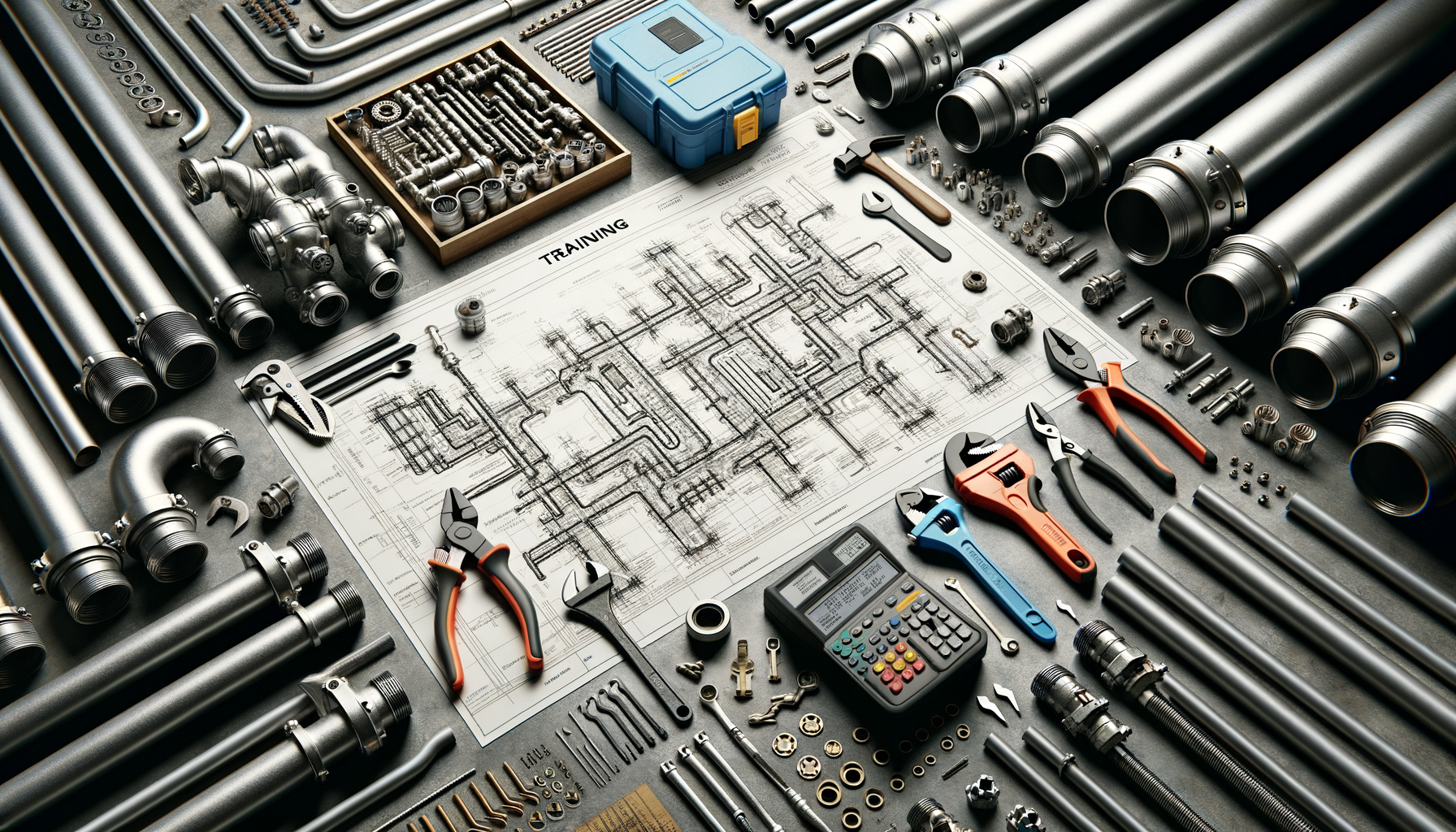Introduction to Plumbing Training Programs
Plumbing is a crucial trade that ensures the smooth functioning of water systems in residential, commercial, and industrial settings. As the demand for skilled plumbers continues to grow, the need for comprehensive training programs becomes increasingly important. These programs are designed to equip aspiring plumbers with the necessary skills and knowledge to excel in their field. Understanding the structure and content of these training programs is essential for anyone considering a career in plumbing.
Core Components of Plumbing Training
Plumbing training programs typically encompass several core components that are vital for developing proficiency in the trade. These components include:
- Theoretical Knowledge: Understanding the principles of plumbing, including fluid dynamics, pressure systems, and water conservation techniques.
- Practical Skills: Hands-on training in installing and repairing pipes, fixtures, and appliances.
- Safety Practices: Learning to adhere to safety regulations and protocols to prevent accidents and injuries.
- Technical Proficiency: Gaining expertise in using plumbing tools and equipment effectively.
These elements are integrated into the curriculum to ensure that trainees receive a well-rounded education that prepares them for real-world scenarios.
Apprenticeships: A Key Training Pathway
One of the most effective ways to learn plumbing is through an apprenticeship. Apprenticeships provide aspiring plumbers with the opportunity to gain valuable on-the-job experience while working under the supervision of experienced professionals. This training pathway allows apprentices to apply theoretical knowledge in practical settings, enhancing their skills and confidence.
Apprenticeships typically last between two to five years, depending on the complexity of the trade and the region’s requirements. During this period, apprentices earn a wage while learning, making it a financially viable option for many individuals. Moreover, completing an apprenticeship often leads to higher employability and better job prospects upon certification.
Certifications and Licensing
Obtaining certification and licensing is a critical step in a plumber’s career. Certification demonstrates a plumber’s competence and adherence to industry standards, while licensing is often a legal requirement for practicing plumbing in many regions. The process of becoming certified and licensed typically involves passing a series of exams that test both theoretical knowledge and practical skills.
In addition to basic certification, plumbers can pursue specialized certifications in areas such as gas fitting, backflow prevention, and green plumbing technologies. These additional qualifications can enhance a plumber’s expertise and open up new career opportunities in specialized fields.
The Future of Plumbing Training
As technology continues to evolve, so too does the field of plumbing. Emerging technologies such as smart home systems, water-efficient appliances, and sustainable plumbing solutions are reshaping the industry. Consequently, plumbing training programs are adapting to incorporate these advancements into their curricula.
Future plumbers will need to be adept at integrating technology with traditional plumbing practices. This shift requires training programs to emphasize digital literacy, problem-solving skills, and adaptability. By staying ahead of industry trends, plumbing training programs can ensure that their graduates are well-equipped to meet the demands of modern plumbing challenges.
Conclusion: The Importance of Comprehensive Training
In conclusion, comprehensive training is the cornerstone of a successful plumbing career. By combining theoretical knowledge, practical skills, and hands-on experience through apprenticeships, aspiring plumbers can build a solid foundation for their professional journey. Certifications and licensing further validate their expertise and enhance employability. As the industry evolves, ongoing education and adaptation will be key to maintaining a competitive edge in the plumbing sector.




Leave a Reply